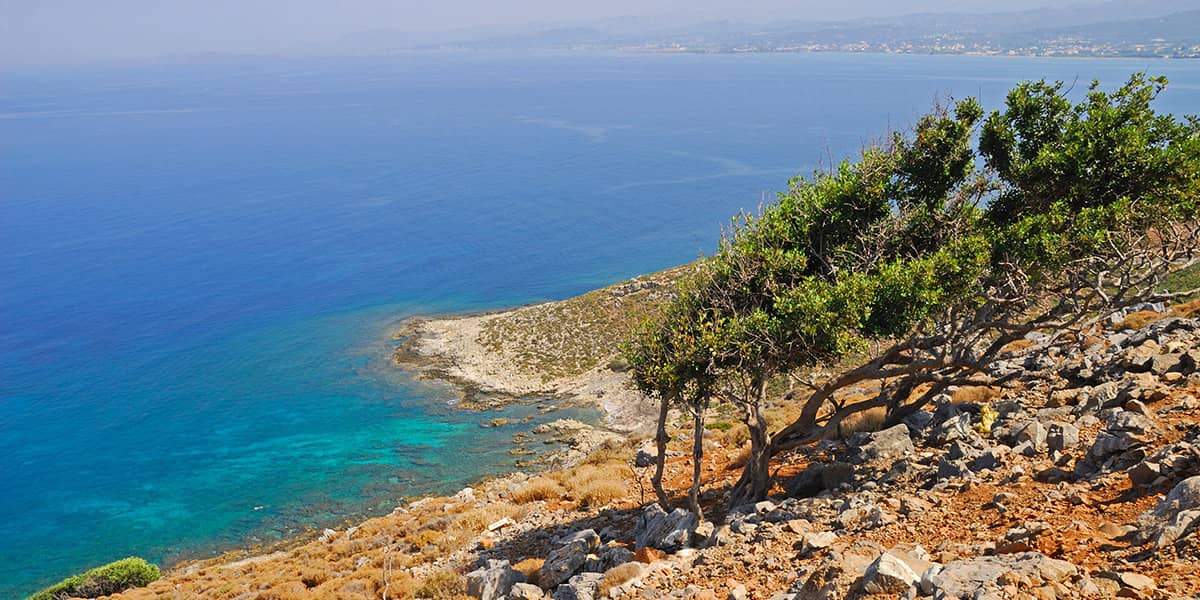
14°C
A visit to the Monastery of Panagia Odigitrias, or Moni Gonias, as it is locally known, on the southeast flank of the Rhodope Cape should include a soothing swim at the beach in front of the monastery or in one of the coves nearby.

The monastery commenced being built in 1618, and was finished in 1634, just in time to become a victim of the Turkish occupation that began in 1645 with the landing of their troops in the area.
The beach in front of the monastery and the many coves around and about have pebbles and rocks and crystal-clear waters: all are most suited to diving. Although not that far from the busy and popular zone of the north littoral of Crete, yet on those beaches here, you will enjoy moments of peace and quiet as you swim.
Because of the presence of the monastery, nudism is forbidden. However, unsupervised camping is allowed.
When here, you can visit the nearby Orthodox Academy of Crete.
On the way from Kolymbari to Chania town is the beach of Maleme.
Rocky
Yes
Yes
No
No
For the Rural Greece accessibility is fundamental to enhancing an inclusive tourism experience. Following the principles of inclusion and equality, the epaithros Rural Tourism Network and its member businesses are constantly working to enhance the tourism services provided, ensuring that all visitors have the opportunity to experience the authentic beauty of the Greek countryside.
Sustainability in tourism refers to a way of developing tourism that respects and protects the environment while strengthening the local economy and preserving cultural traditions. The aim of sustainable tourism is to provide unique and authentic experiences for visitors without harming the natural and social environment, while ensuring that local communities benefit from tourism activity.
This type of tourism is based on three pillars:
With sustainable tourism, visitors can have authentic experiences, knowing that the impact of tourism on the region is positive and lasting for future generations.
For Rural Greece, localism is one of the most important factors for the development of sustainable tourism, as it promotes a strong link between the tourism product and the local society, economy and culture. Through localism, visitors get the opportunity to explore authentic elements of the destination, such as local products, traditions and culture. This not only boosts the local economy, but also helps to sustain and strengthen local businesses, creating new jobs and supporting the development of local communities.
Furthermore, localism contributes to the sustainability of the tourism sector, as it reduces the use of resources from other regions and encourages the use of local goods and services, reducing the ecological footprint of tourism activities. Thus, integrating localism into tourism practices enhances sustainability awareness, both among visitors and local businesses, creating a more responsible and sustainable tourism destination.